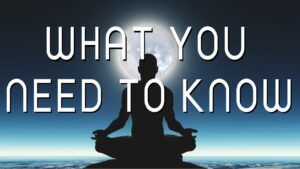Understanding Emotional Granularity: Insights from Brené Brown on Boundaries and Core Emotions
Exploring the Depths of Our Emotional Landscape for Better Relationships and Self-Understanding
Emotional Granularity: Brené Brown’s research shows most people can identify only three emotions—happy, sad, and angry. She advocates for recognizing a wider range of emotions, termed “emotional granularity,” to improve self-understanding and relationships.
Atlas of the Heart: Brown’s latest book and HBO Max series, “Atlas of the Heart,” maps 87 key emotions and experiences, encouraging a deeper emotional vocabulary and understanding.
Key Insights: Brown discusses concepts such as the “near enemy” from Buddhism, the limits of reading emotions in others, the importance of believing people’s expressions of their feelings, and the necessity of boundaries for meaningful connections.
Professional Background: Brown is a research professor at the University of Houston, a visiting professor at the University of Texas at Austin, and the host of the podcasts “Unlocking Us” and “Dare to Lead.” Her TED talk on vulnerability is among the top five most-viewed.
Podcast Notes: The episode includes a note on the availability of a clean version for sensitive listeners and highlights upcoming content, including interviews with the Dalai Lama and discussions on mindful relationships with money.
The Concept of Emotional Granularity
Brown’s research reveals a startling fact: most people can identify only three emotions—happy, sad, and angry. This limited emotional vocabulary, she argues, restricts our ability to fully understand and navigate our emotional world. Brown introduces the concept of emotional granularity, encouraging us to recognize and name a broader range of emotions. By doing so, we enhance our self-awareness and our capacity to handle emotions more effectively.
Atlas of the Heart: Mapping Key Emotions
In her latest book and accompanying HBO Max series, Atlas of the Heart, Brown maps out 87 key emotions and experiences. This comprehensive guide aims to enrich our emotional vocabulary and deepen our understanding of the intricate landscape of human feelings. By identifying and articulating specific emotions, we can better understand our own experiences and improve our interactions with others.
Key Insights from Brené Brown
During her conversation with Dan Harris, Brown shared several pivotal insights:
- Influence of Buddhist Concepts: Brown discusses the Buddhist concept of the “near enemy,” which highlights how seemingly similar emotions can lead to vastly different outcomes.
- Limits of Reading Emotions: She challenges the notion that we can accurately read others’ emotions, emphasizing the importance of believing people when they express how they feel, while remaining aware of potential manipulation.
- Framework for Meaningful Connection: Brown presents a new framework for building meaningful connections, which hinges on establishing clear boundaries.
Professional Background and Impact
Brown’s extensive career spans over two decades of studying courage, vulnerability, shame, and empathy. As a research professor at the University of Houston and a visiting professor at the University of Texas at Austin, she has significantly contributed to our understanding of these complex emotions. Additionally, her podcasts, “Unlocking Us” and “Dare to Lead,” along with her widely viewed TED talk on vulnerability, have made her a leading voice in emotional research and personal development.
Podcast Notes and Upcoming Content
The Ten Percent Happier Podcast episode featuring Brown includes a note for listeners about the availability of a clean version for sensitive ears. Looking ahead, the podcast promises exciting content, including interviews with His Holiness the Dalai Lama and discussions on developing a healthier relationship with money.
Conclusion
Brené Brown’s insights on emotional granularity and the importance of understanding a broad range of emotions underscore the value of deep emotional awareness. By expanding our emotional vocabulary and setting clear boundaries, we can foster more meaningful connections and navigate our emotional world with greater ease. This journey towards emotional granularity is not just about self-improvement but also about enhancing our relationships and overall well-being.












